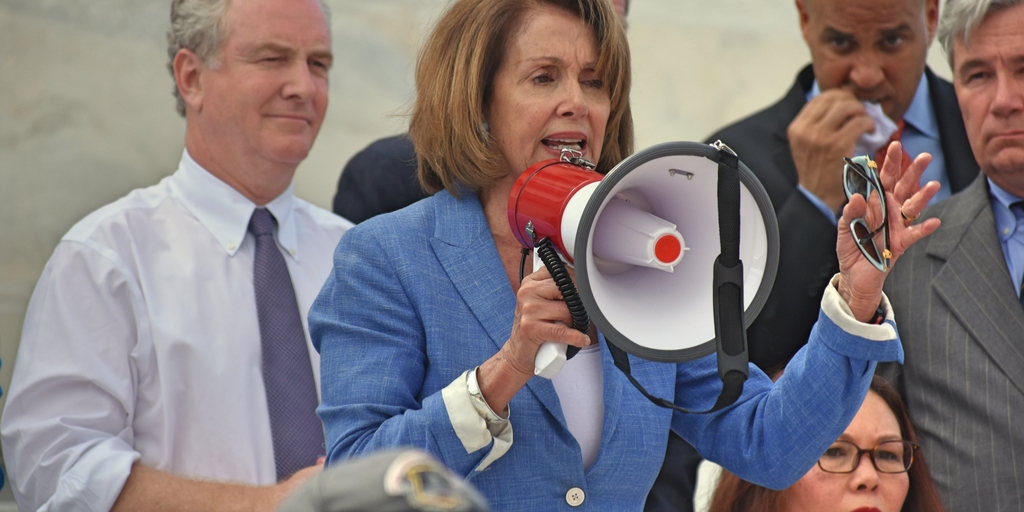An Impotent Congress Can't Impeach Trump
For all the condemnation raining down on Attorney General William Barr for his press conference last Thursday, he had the law dead to rights: contact is not collusion, obstruction requires a legal understanding of corrupt intent, and, most important, the purpose of grand juries is not to expose information or educate the public. It is to assess whether to indict someone for a crime.
The real problem lies not with Barr but rather with Congress, which—having no institutional identity, much less self-respect, apart from opposition or loyalty to the President—farmed out its homework to Robert Mueller and now rues the conclusions he reached and the constraints they impose.
If Democrats were hunting for grounds for impeachment—and such grounds should neither be enthusiastically desired nor concealed if found—a prosecutor was a wholly inept instrument for doing so. Had Congress, recognizing its institutional responsibilities under the separation of powers, done its own investigation with an eye toward Federalist 65’s threshold for impeachment—offenses “which may with peculiar propriety be denominated POLITICAL”—it would have found ample grounds for complaint and would have had a duty to make its case in the court of public opinion.
The firing of James Comey for purposes, in the President’s own words, of stopping the investigation is an instance in point. Setting aside the Justice Department’s consistent if predictable conclusion that sitting Presidents cannot be indicted, it is highly doubtful that a President can be guilty of obstruction for exercising a legitimate constitutional duty. The alternative is to declare prosecutors immune to civilian oversight, which is a formula for abuse.
But Congress could reasonably—perhaps imprudently, but reasonably—regard the removal of an FBI Director to protect oneself, and the manufacture of public grounds for doing so, as an abuse of power. The same is true of the multiple instances documented in the report of the President attempting to derail Mueller only to be restrained by his staff. These cannot be crimes for the undisputed reason that they did not occur; the abuse, if Congress were to see it as such, would be in the intent to do so.
Had Congress reached similar investigatory conclusions as Mueller—and there is no reason to believe it would not have, given its own robust investigatory authority—it would have uncovered ample political offenses. The next question would have been the prudence of pursuing them to the conclusion of impeachment and removal, which would have entailed weighing their severity against the unquestionable fact that doing so would have further rent a country in which it is increasingly difficult to find a citizen whose feelings for or against the President are less than intense.
But Congress—partly for partisan rather than institutional reasons, and partly because Democratic rhetoric over and over deferred to Mueller’s investigation—is now trapped. It has accepted an overly literal understanding of its impeachment power (“legalistic” rather than “high” crimes and misdemeanors) and outsourced its work to law-enforcement officials whose job is to investigate crime rather than political offenses.
In the course of their keening, Democrats might consider that their positions would set precedents not to their liking in other circumstances. What is done to the wealthy and powerful defendant will also be imposed on the indigent and powerless, too.
If professional prosecutors are untouchable by political authorities, be prepared for a cadre of Javerts unbound by prudence. That does not mean prosecutors are dispositional fanatics. It means that anyone with unchecked powers tends toward fanaticism.
Similarly, if the public has the right to know the fullness of grand jury investigations in which it has an interest—and presumably the public has an interest in them all, or the investigations should not have been undertaken in the first place—they will become a tool for embarrassment rather than indictment. A powerful target is in the crosshairs now. But most grand jury investigations both target ordinary if not outright powerless people and sweep up a vast raft of collateral information about bystanders in the process. The public has no right to know this information. Moreover, unrestrained exposure of grand jury information on the sanctified grounds of “transparency” would create an incentive for prosecutors to use that authority to threaten targets with humiliation when they cannot threaten them with indictment.
All this results from Congress’s congenital allergy to its inherently political work. It is no different from the mentality that defers to executive branch technocrats to set policy lest members of Congress incur controversy or, more precisely, accountability. The Mueller investigation, and its disappointments for presidential critics, is the triumph of the tyranny of expertise that is the characteristic mark of the administrative state.
None of this is to say the evidence in the Mueller Report was either inculpatory or exculpatory of political offenses. It is to say a prosecutor’s job is something else entirely. If Congress wants to explore a President’s abuse of power—and that was one of the counts against Richard Nixon, whose tapes, it bears recollection, were exposed by a legislative investigation—it should do so not with the single-minded determination of a prosecutor to prosecute but rather with the prudence of politicians whose responsibility is to the totality of the public good.
No one has emerged from this affair unscathed. The President hardly looks presidential, and his critics are not unreasonable in alleging that his reported conduct constitutes grounds for believing he does not belong in the office. His belief in his own innocence as a motive for this conduct is defensible grounds for refraining from a technical charge of obstruction, but it is not a reason to believe he is temperamentally fit for the presidency. Presidential loyalists might take their pulse on this by imagining their reaction had President Obama, sincerely believing himself blameless in the IRS’s targeting of political groups, repeatedly attempted to obstruct that investigation. The same holds true for President Clinton’s immovable belief in his innocence in the Starr inquiry.
It does not distinguish the cases to say President Trump is innocent while Clinton and Obama were guilty. Innocence of the underlying offense does not of itself exonerate an investigatory subject of obstruction. The question is whether the accused corruptly intended to obstruct justice. But these are not times of consistency in anyone’s principles. The only line cutting unswervingly across political conduct now is that Democrats defend Democrats and Republicans defend Republicans, and each accuses the other accordingly.
Regardless, the question of President Trump’s fitness for office is not a de novo inquiry. He is in the office. The prescribed rules of the constitutional game put him there on the basis of the genuine foundation of any republic: public opinion refined and enlarged.
Those rules also include means of removal if information subsequent to an election reveals a political offense. But the Constitution supplies no grounds for Congress outsourcing that work. If it does so anyway, it is and ought to be bound by the legal rules that serve the public interest and protect the innocent in ordinary investigations. Regardless of whether one wants to accuse or exonerate this President, the Mueller Report, and the Attorney General’s characterization of it in his press conference, are not the problem. Congress’s impotence is.



